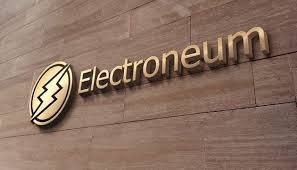The concept of blockchain has become actively discussed with the observation of cryptocurrency. We can say that this technology can be a real breakthrough in the field of finance and secure data.

Blockchain overview
Blockchain is a shared, immutable ledger that simplifies the process of recording transactions and accounting for assets on a business network. Assets can be tangible (house, car, money, land) or intangible (intellectual property, patents, copyrights, branding). Almost anything that has any value can be tracked and sold using the blockchain. This technology reduces risks and costs for all parties involved.
Importance of blockchain
Business depends on data. Data acquisition speed and accuracy are critical. Blockchain is ideal for providing such information as it offers authorized network participants instant, general, and completely transparent access to information in an immutable ledger. The blockchain network allows you to track orders, payments, accounts, items, and more. And because all participants share a single source of trusted data, you can view all transaction details at any time to work with greater confidence and gain new benefits and opportunities.
The main elements of the blockchain
The blockchain has three main elements.
Distributed ledger technology
All network members have access to a distributed ledger and immutable transaction records. The shared ledger implements a single write transaction and eliminates the duplication of effort that is common in traditional business networks.
Immutable records
After a transaction is recorded in the general ledger, no one of the participants can change or falsify it. If an error is found in the transaction record, a new transaction with the correction must be added, and both transactions will be visible.
Smart contracts
To speed up transactions, a set of rules (smart contract) is applied. It is stored on the blockchain network and executed automatically. A smart contract can define the conditions for the transfer of corporate bonds, add criteria for the payment of travel insurance, and more.
Blockchain benefits
Blockchain has several main benefits:
Building confidence
By joining the blockchain network, you can be sure that you will always receive accurate and timely information, as well as that your confidential blockchain records are available only to the network participants of your choice.
High security
To make a transaction, the consent of all participants regarding the accuracy of the data is required. The records of all verified transactions are unchanged: they remain forever in the blockchain. No one, not even a system administrator, can delete a transaction.
Improving efficiency
A distributed ledger, to which all network participants have access, eliminates the need to waste time reconciling records.
How blockchain works
- Each transaction is recorded as a block of data.
Transactions reflect the movement of an asset, which can be tangible (goods) or intangible (intellectual property). You have complete control over the content of the data block: who, what, where, when, how much, and even the conditions, such as the temperature of food transportation.
- Each block is linked to the previous and subsequent blocks.
Blocks form a chain of data as a resource moves from one location to another or changes ownership. The blocks confirm the exact time and order of transactions. Also, the blocks are linked to each other which eliminates the possibility of changing a block or inserting a block between two other blocks.
- Transactions form an immutable blockchain.
Each new block is considered an additional confirmation of the authenticity of the previous block and the blockchain as a whole. Thus, the blockchain is protected from unauthorized changes, and this is one of its main advantages. By eliminating the possibility of hacking by attackers, a reliable transaction ledger is created that you and other network participants can trust.
Applications of blockchain
Considering how the blockchain works, cryptocurrencies (both popular bitcoin and its analogs) work according to the proposed scheme. But this scope is not limited. A large interest in data storage systems has banking institutions and government organizations that provide access to data on medical records, pension accruals, etc.
Promising areas of blockchain use:
- Ownership;
- Operations with raw materials and goods;
- Authentication, confirmation of access rights;
- Data management;
- Electronic voting means;
- Online Games.
Blockchain and Bitcoin
Blockchain technology is well established in bitcoins, a popular and expensive cryptocurrency. In bitcoins, the following rules apply, which are typical for the blockchain in general:
- Each hash is unique; when calculating the next transaction, another one is created, not related in any way by value to the previous one (you cannot pick up the second one by one);
- It is impossible to recover the original number from the hash, it excludes brute-force attacks;
- The frequency of the appearance of a new hash is laid down at the level of the formula. Only the creator of a specific system can change it;
- The block database is public and fully protected from hacking;
- Calculations are carried out by users on a home computer or using special equipment;
- A minor drawback of the current Bitcoin system is the visibility of all transactions. Each owner of this cryptocurrency wallet sees how much is transferred and where. But it is impossible to find out who the owner of this or that wallet is. Complete anonymity remains.
Development prospects
A tempting list of advantages does not allow us to ignore the blockchain system. The prospects are too bright when technologies are introduced at the global level. The pursuit of economic growth inevitably leads to the consideration of new development.
Blockchain allows solving several problems at once:
- Significant reduction in time spent on financial procedures;
- Reducing material costs due to the need for powerful servers, and expensive data storage systems;
- Deprivation of the monopoly of large companies trying to manipulate the market at the expense of big capital;
Optimists predict liberation from corruption, exclusion of monetary fraud, and large financial crimes. In their opinion, the transparency of the system will force all its users to comply with the law because any operation is open.










